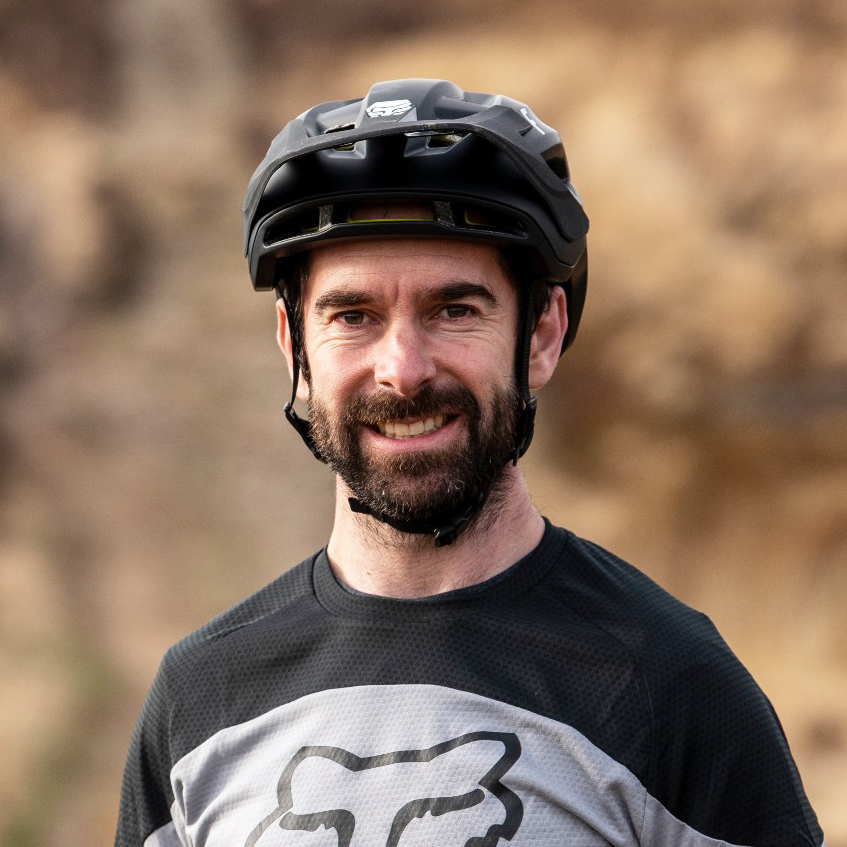The Bird Aeris 9, now in its sixth generation, is built around 29in wheels and is focused very much on enduro riding and racing.
In this latest iteration, the Aeris 9 offers up not just geometry adjustment, but the chance to increase the rear-wheel travel from 160mm to 180mm using a different link, which Bird sells as an optional extra (£90).
As we’ve come to expect from the British brand, Bird has done a great job of matching the Aeris 9’s contemporary geometry with ride characteristics that’ll help you pilot it down just about any trail.
It’s impressive then, that the Bird Aeris 9 costs as little as it does, making it a real bargain as well as a contender for our 2023 Enduro Bike of the Year title.
Bird Aeris 9 Shimano 12-speed frame and suspension details
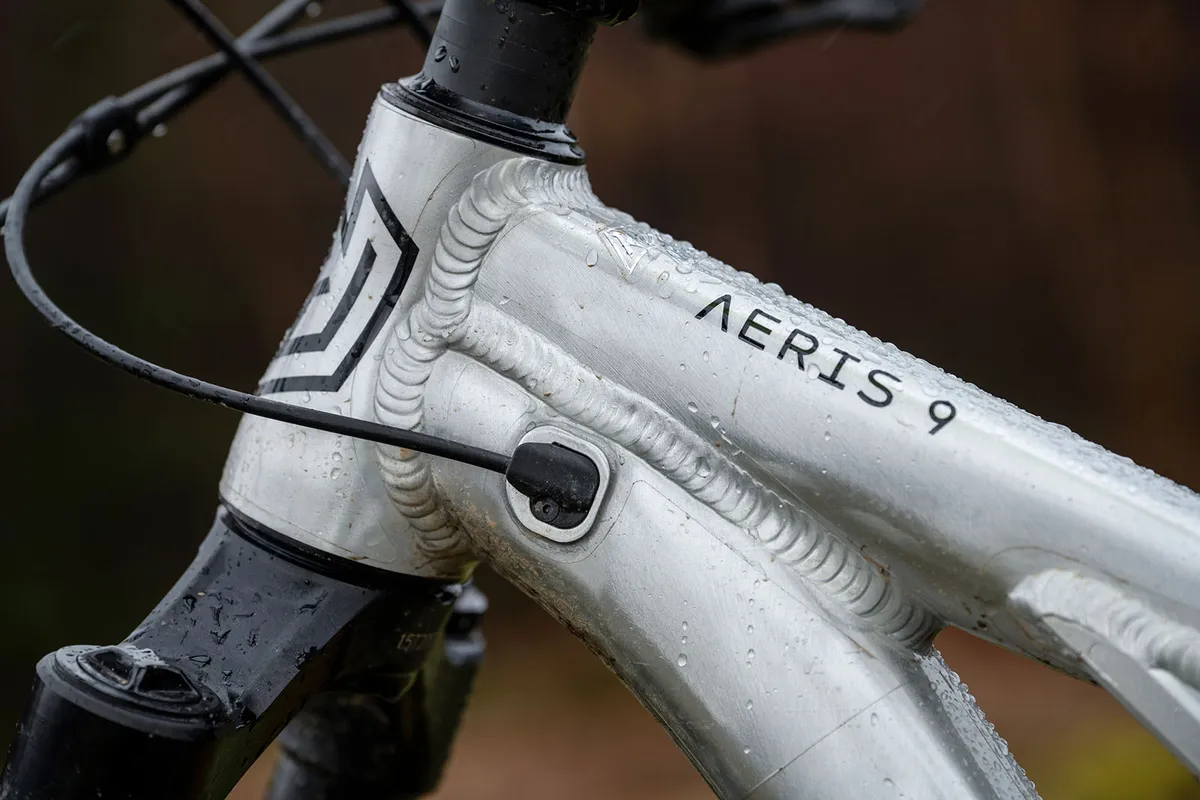
Bird sells directly to the consumer, offering customisable specs and loads of in-depth information for those who want to know everything there is to know about the bike they're about to purchase.
Alongside the exploded assembly drawings of the aluminium Aeris 9, you get to see the leverage and anti-squat curves, as well as all the usual geometry information. It’s all very interesting stuff if you like to geek out on facts and figures.
When it comes to frame details, Bird is very rider focused. That means there’s a focus on frame longevity and the brand has done its best when it comes to making life for the home mechanic that bit easier.
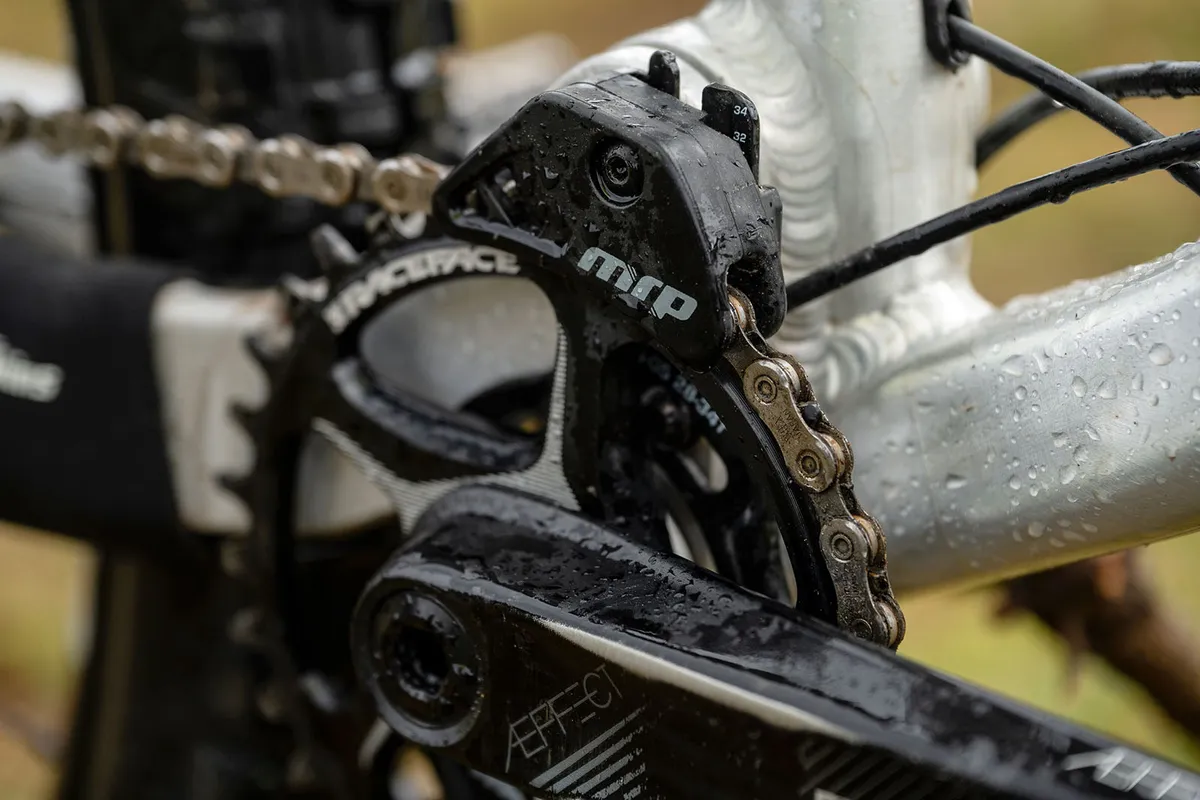
The main pivot now rotates on larger pivot bearings, which get a double-lip oil/dirt seal to try and help preserve performance for as long as possible.
Then there’s the cable routing. Bird gives you the option to route the Aeris 9 internally or externally, depending on your preference.
Naturally, with the Aeris 9 being designed as an enduro race bike, routing the cables externally makes for quicker parts swaps should you need to do so. It’s a nice touch.
And there’s no routing through the headset because the people at Bird, in their own words, “don’t hate you”.
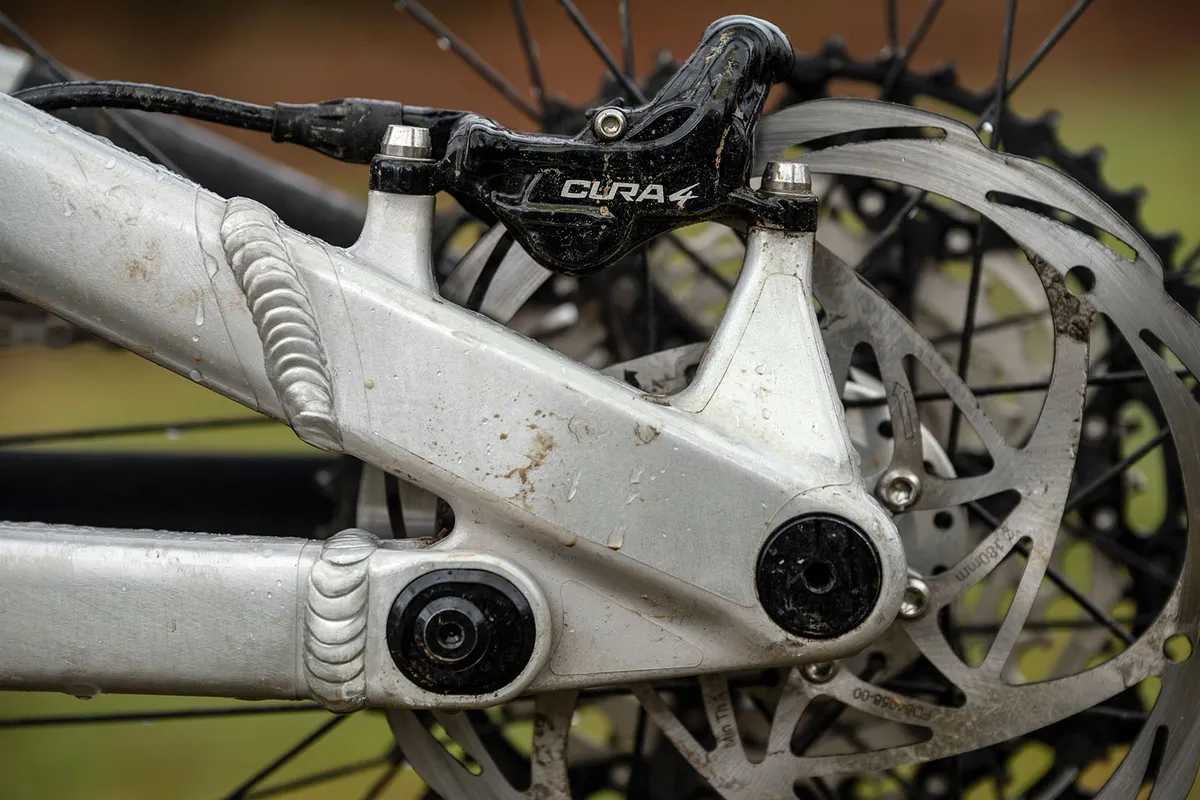
The rear triangle will fit a decently sized 29x2.6in tyre comfortably, and the use of the SRAM Universal Derailleur Hanger means finding a spare should be pretty easy.
While the Aeris 9 comes with 160mm of rear wheel travel as standard, Bird does sell an additional machined linkage for £90 that will bump it up to 180mm. This will match the maximum fork travel up front, which is now also 180mm.
That travel is delivered via a four-bar linkage and controlled by the horizontally mounted shock, which nestles under the top tube.
Bird says it has gone for 30 per cent progression across the entire travel range in a bid to ensure there’s a good amount of support throughout. That means it’ll work with an air or coil-sprung shock.
The anti-squat (the measure of how much the suspension resists bobbing as you pedal the bike) sits at around 100 per cent when the bike is sagged to just under 30 per cent of the rear-wheel travel.
Bird Aeris 9 Shimano 12-speed geometry details
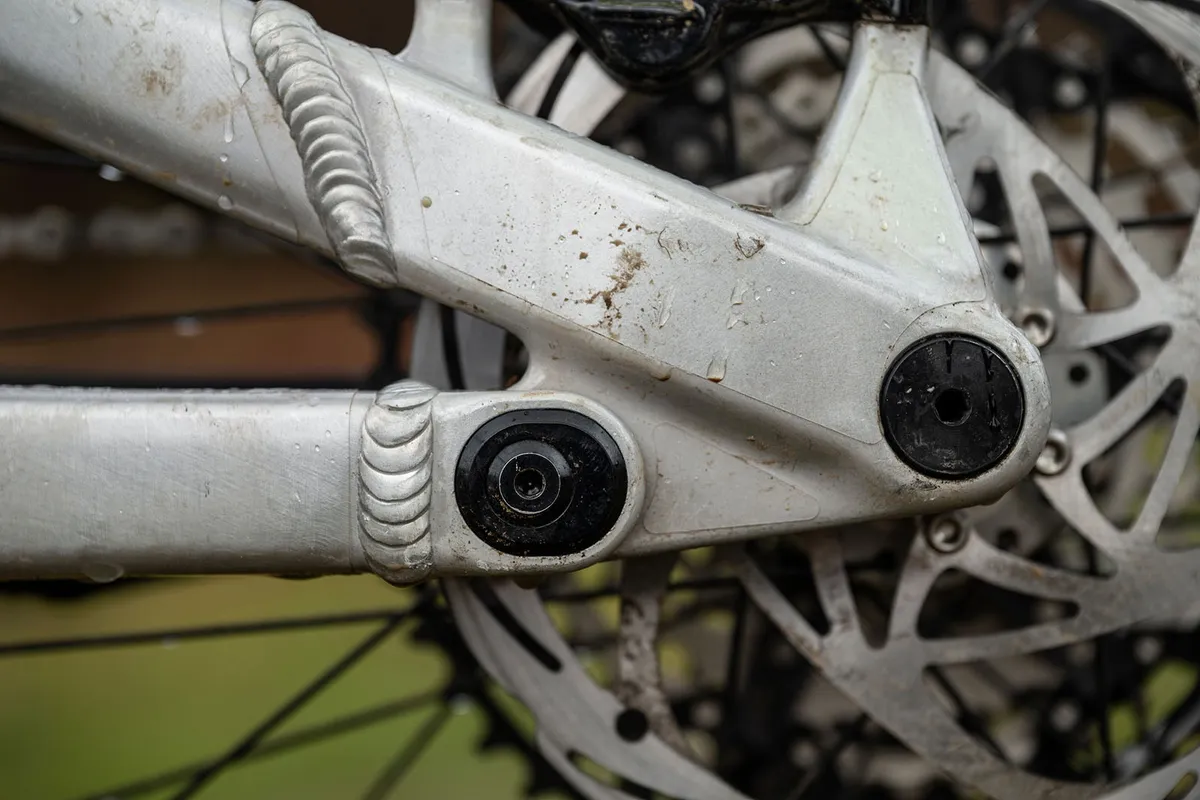
Bird offers the Aeris 9 in four frames sizes, including medium, medium/long, large and extra-large.
There’s a flip chip on the chainstay, which enables you to alter the rear centre by 6mm, while also slackening the head angle by 0.5 degrees and lowering the bottom bracket by a claimed 7mm.
In the shorter chainstay setting, the rear centre (AKA the effective chainstay length) is 440mm.
I measured my medium frame to have a reach of 455mm, a slack head angle of 63.5 degrees and a lengthy front centre of 810mm, which should make for a very stable ride at higher speeds.
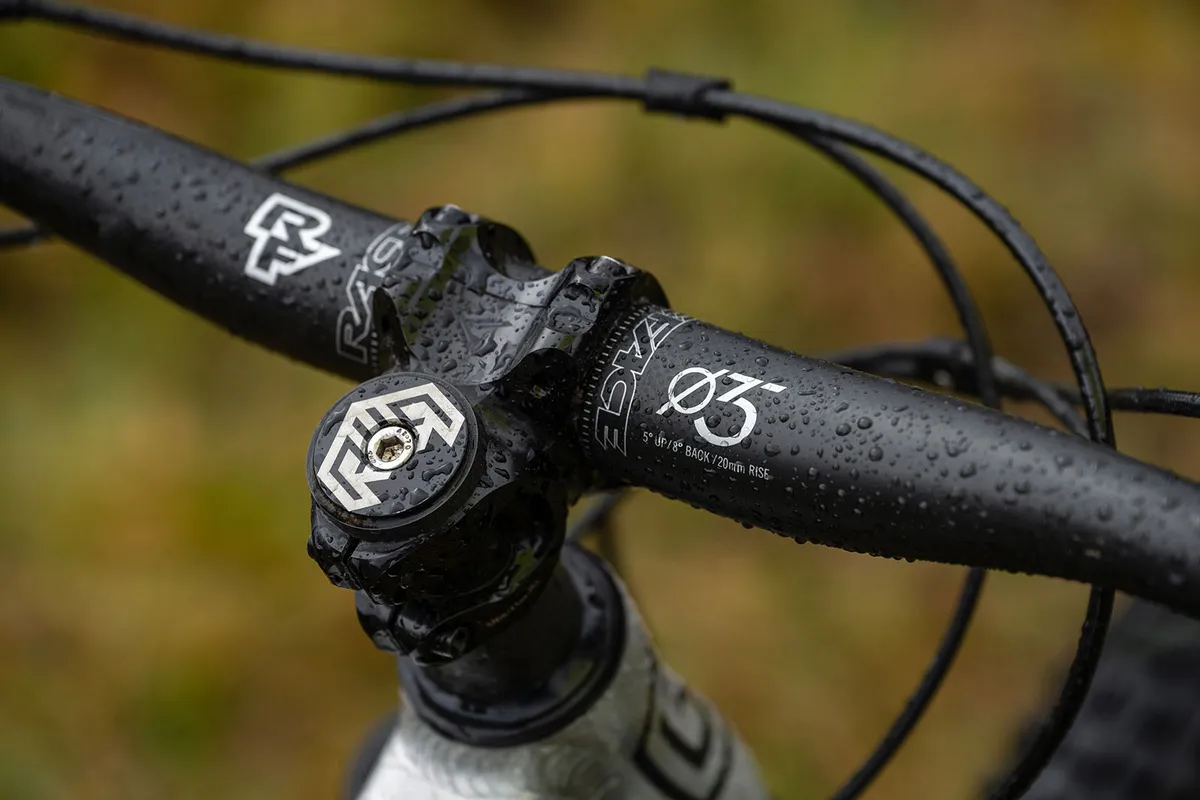
As the frame sizes grow, the Aeris 9’s seat tube angle steepens. In the case of my medium frame, I measured it to be a smidge under the claimed 77-degrees. The steep seat tube angle should help to create a comfortable, efficient seated position on the climbs.
I measured the bottom bracket to sit 345mm off the floor in the shorter chainstay setting – this is very much in line with the other bikes in the Enduro Bike of the Year test, though bear in mind this can be lowered further with the geometry adjustment available.
Bird Aeris 9 Shimano 12-speed specification
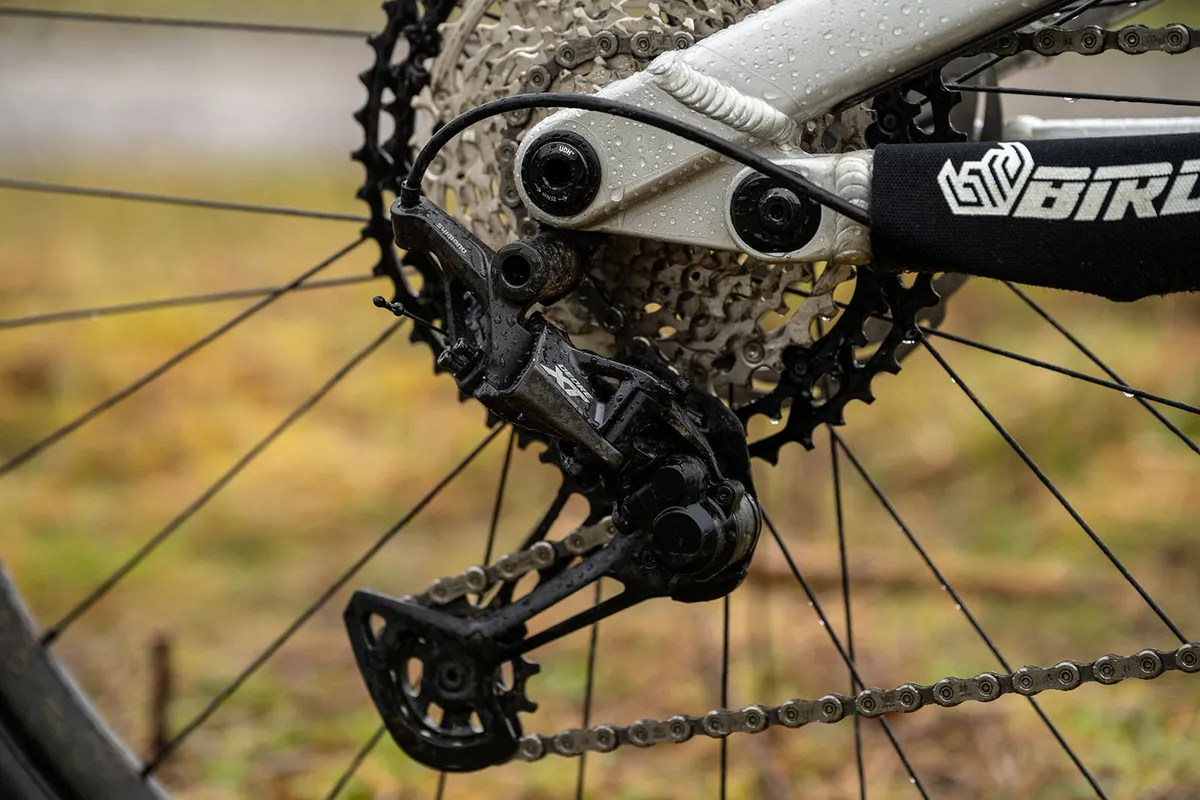
In much the same way as Cotic, which also sells direct to the consumer, Bird offers the Aeris 9 with a foundation Shimano or SRAM 12-speed build.
You can then go about customising every part to suit your preference or budget, choosing from a number of brand options. You can even add an O-Chain device, FidLock water bottle, spare derailleur hanger or the longer-travel, 180mm link.
My Aeris 9 is built around a Shimano XT drivetrain with a Race Face crankset.
Up front, a RockShox ZEB Ultimate fork with 180mm of travel. The ZEB Ultimate uses the latest DebonAir+ air spring and very adjustable Charger 3 damper.
The RockShox Super Deluxe Ultimate rear shock is also updated for 2023 and offers low- and high-speed compression and rebound-damping adjustment.
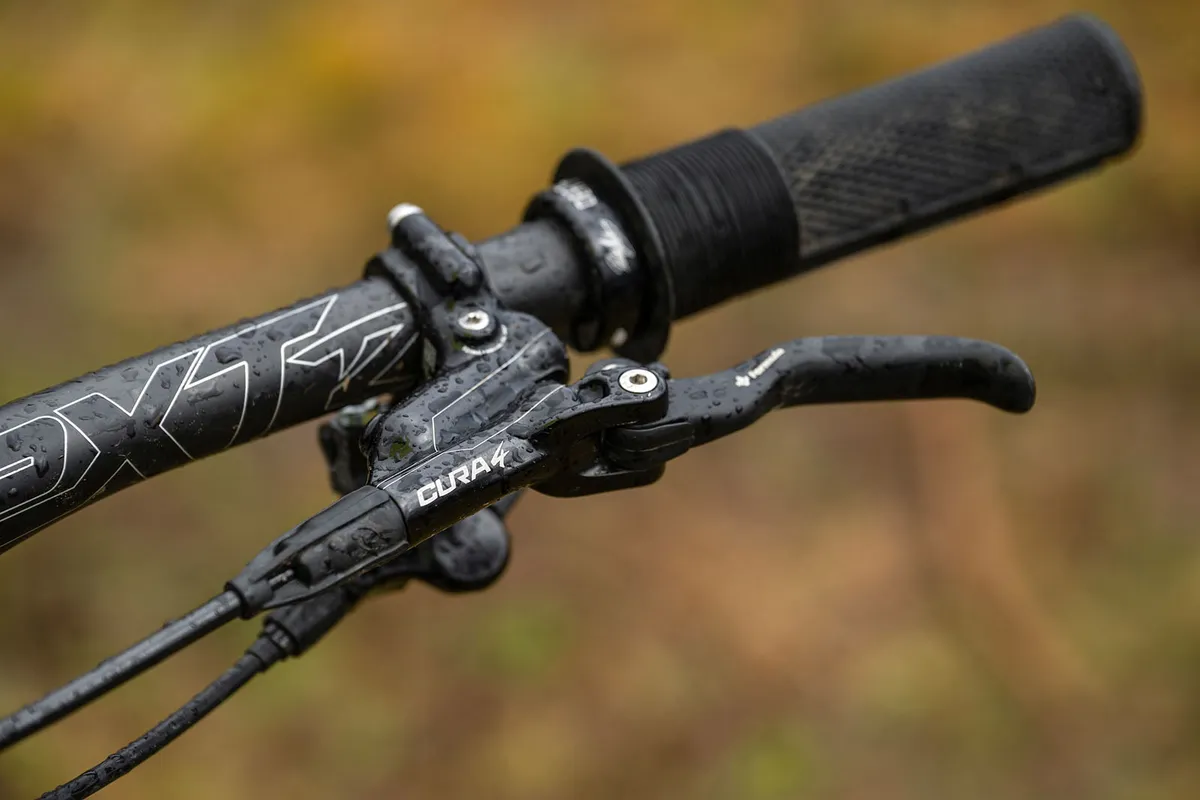
Formula Cura 4 brakes bring the Aeris 9 to a stop, while DT Swiss provides its FR541 rims built onto Hope Pro 4 hubs. I’d have preferred to have had 203mm rotors at the front and rear to boost brake power.
These are wrapped in Maxxis tyres. At the front, there's an Assegai in the 3C MaxxTerra compound and EXO+ casing. At the rear, we get a Minion DHR II, in the same compound and casing.
Bird supplied the bike with the stiff Race Face Next R handlebars and skinny Race Face Getta Grips, which I found too slim and unforgiving. Bird happily swapped these out for some softer DMR Deathgrips, which helped improve comfort on rougher trails.
Bird Aeris 9 Shimano 12-speed ride impressions
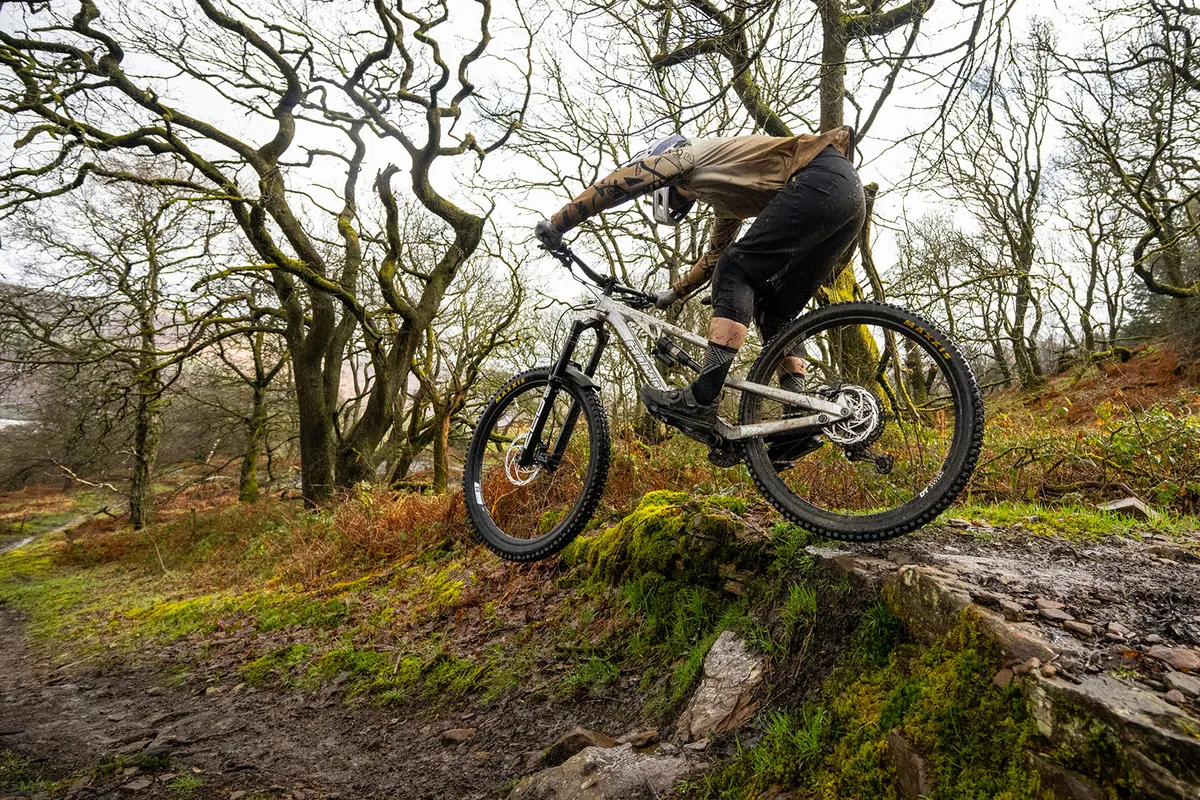
I rode the Bird Aeris 9 on a wide variety of trails around southern England and Wales.
These varied in terrain type, speed and gradient, including some man-made tracks littered with high-speed rock gardens, heavy impacts and big jumps. There were also steeper, natural, technical trails where the roots and rocks were plentiful but speeds a little lower, along with everything in between.
Bird Aeris 9 Shimano 12-speed setup
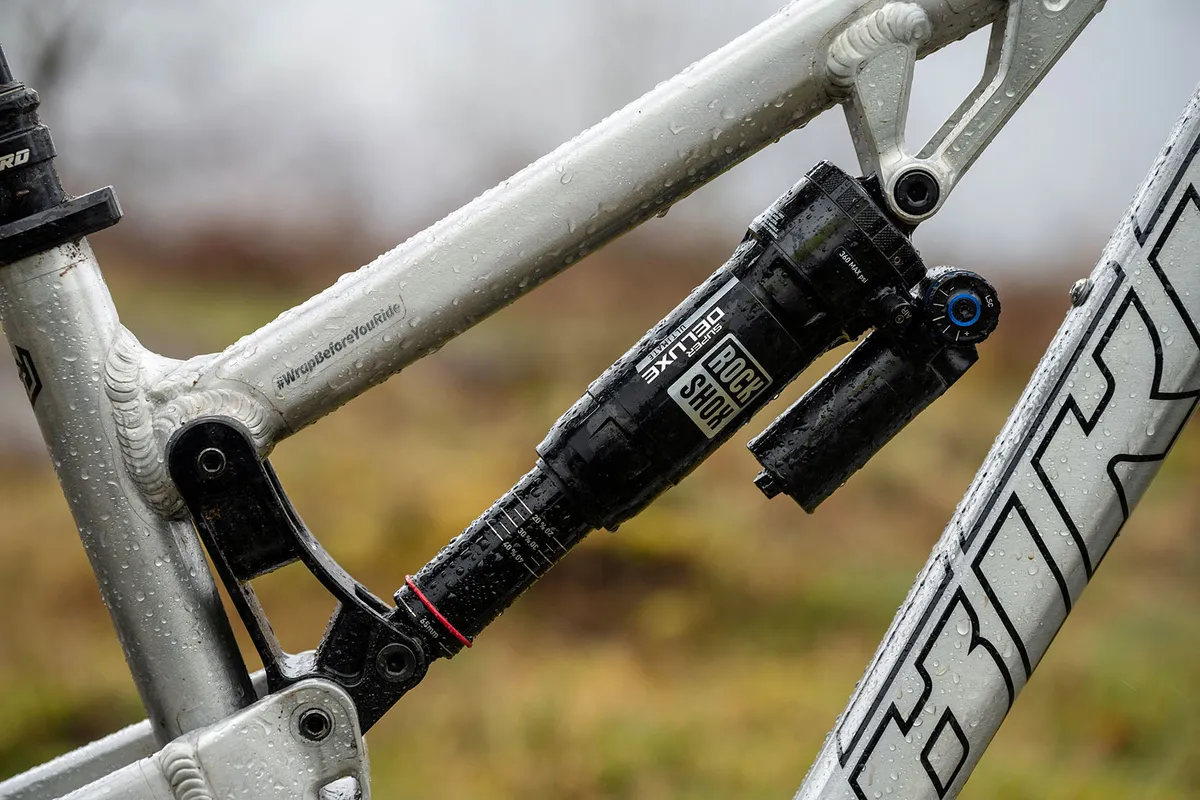
As Bird was happy to supply the additional link, I was able to test the Aeris 9 with 160mm and 180mm of rear-wheel travel. I preferred the latter overall, mainly because I felt the bike was at its most balanced.
In this configuration, I felt like the shorter 440mm chainstay setting worked best for me.
With both travel setups, I ran 30 per cent sag and no volume spacers in the shock. I opened up the low-speed compression and rebound damping dials fully, though left the high-speed compression in the middle position.
With the fork, I opened the high- and low-speed compression and rebound damping fully and had 54psi in the air spring to get the ZEB Ultimate to work in a way I was happy with at 68kg (fully kitted up).
Aside from adjusting the shock pressure slightly when altering between links, I didn’t need to alter any other adjustments throughout testing.
Bird Aeris 9 Shimano 12-speed climbing performance
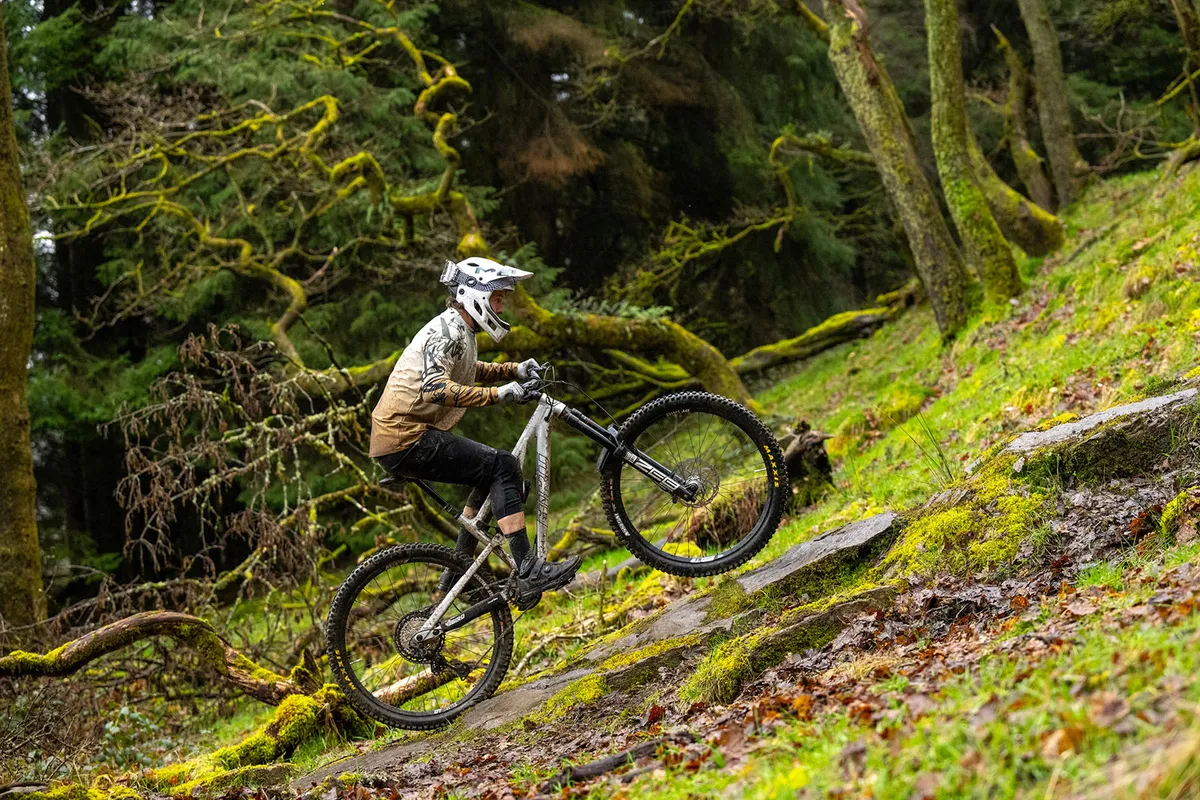
The steep seat angle, coupled with the 600mm effective top tube, puts you in a great position when seated to tackle the climbs.
In fact, the Bird consistently impressed me when pointed uphill, thanks in part to that position, but also due to how well the bike pedals. There’s a bit of suspension bob as you turn the pedals but not enough to ever warrant reaching for the threshold lever on the shock to firm it up.
Instead, you can comfortably leave it open, allowing it to work away beneath you as you inch your way up the hill.
On steeper inclines, thanks to the relatively upright position on the bike and having the front wheel kicked out so far in front, I never struggled with wheel lifting as I navigated awkward, slow-speed sections.
Overall, the Aeris 9 certainly climbs well for a bike with this much travel.
Bird Aeris 9 Shimano 12-speed descending performance
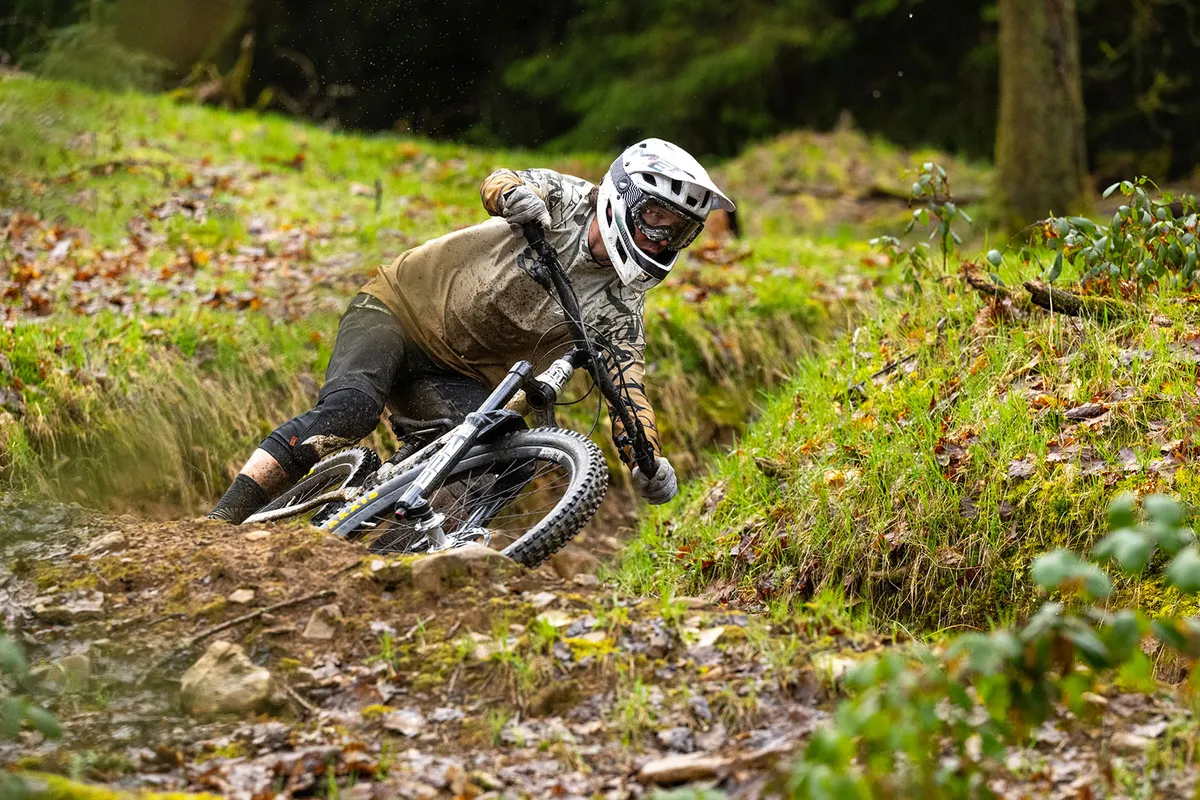
While I was always happy with the Bird’s proportions when seated and climbing, I was even happier when up out of the saddle and getting stuck into technical, steep singletrack. There, the Aeris 9 truly comes to life.
It’s not until you encounter something a little dicey or nerve-wracking that you realise just how balanced the Aeris 9 feels.
When tackling steep, successive turns that culminate in a high-load catch berm (that’s really more of a narrow rut that has to be hit to stay on the trail), I felt my confidence begin to creep up.
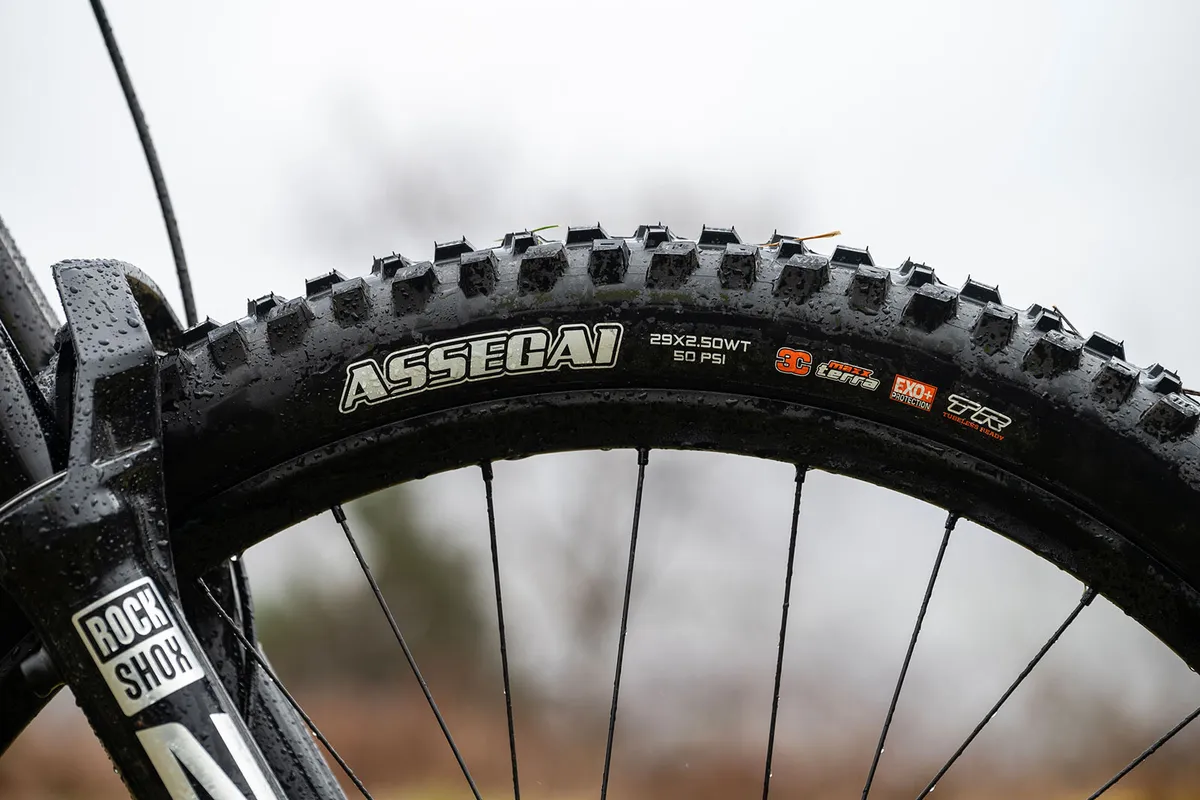
The Aeris feels so well balanced and well-centred that on every run I felt I could let off the brakes that bit earlier and hit the section faster and faster.
Both the front and rear of the bike offered more than enough support to really let me push the bike into turns like this, maintaining the bike's dynamic geometry and never giving suspension travel up too easily in the process.
This all equates to carrying more speed as you barrel out of the exit of a turn banked over on the edges of the impressively predictable Maxxis tyres.
Suitably sensitive
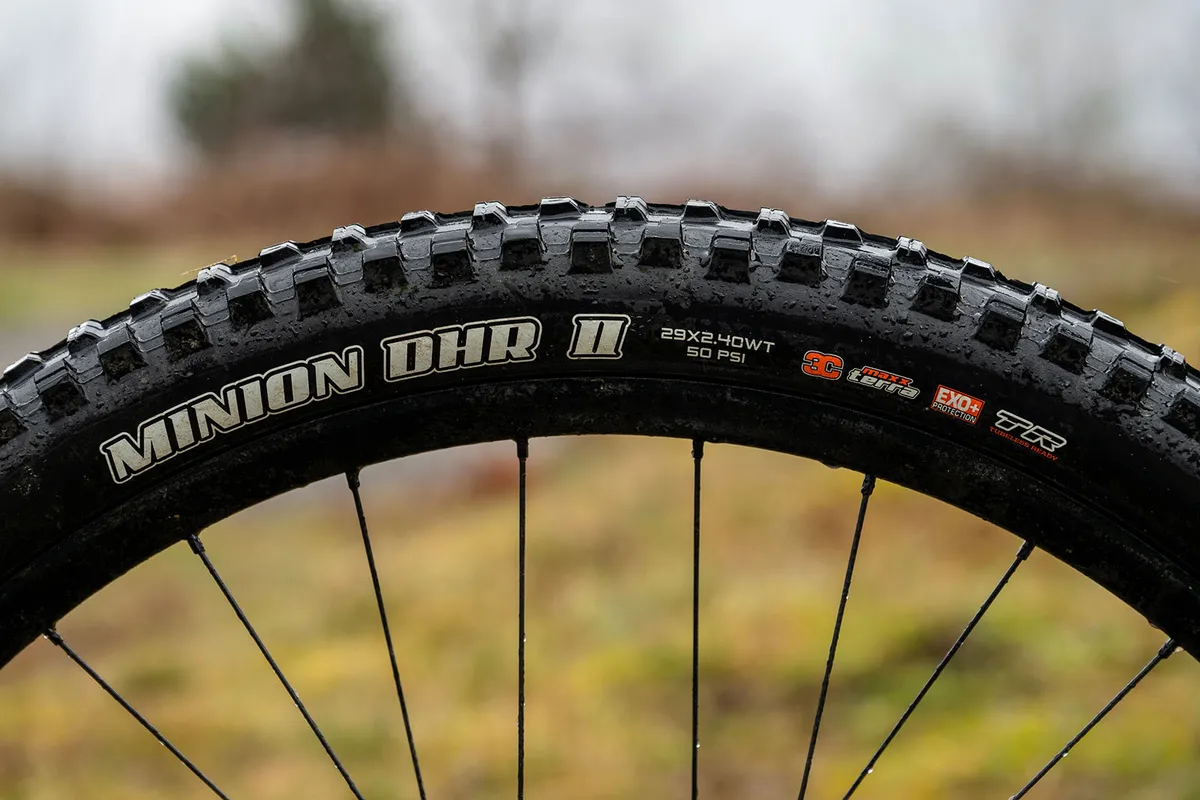
On trails that aren’t quite as steep, the Aeris 9 manages to maintain momentum pretty well.
The back end of the bike is suitably sensitive and tracks the trail’s contours well, which in turn helps to keep the tyres gripping.
It doesn’t feel as active or as plush as the best on test. That’s not necessarily a bad thing, though, but it means things don’t feel as lively or as responsive in some situations.
While that more muted feeling through the back of the bike helps to iron out feedback through the frame, it can mean some more sedate terrain can feel a little duller and less exciting to ride.
Happy at high speeds
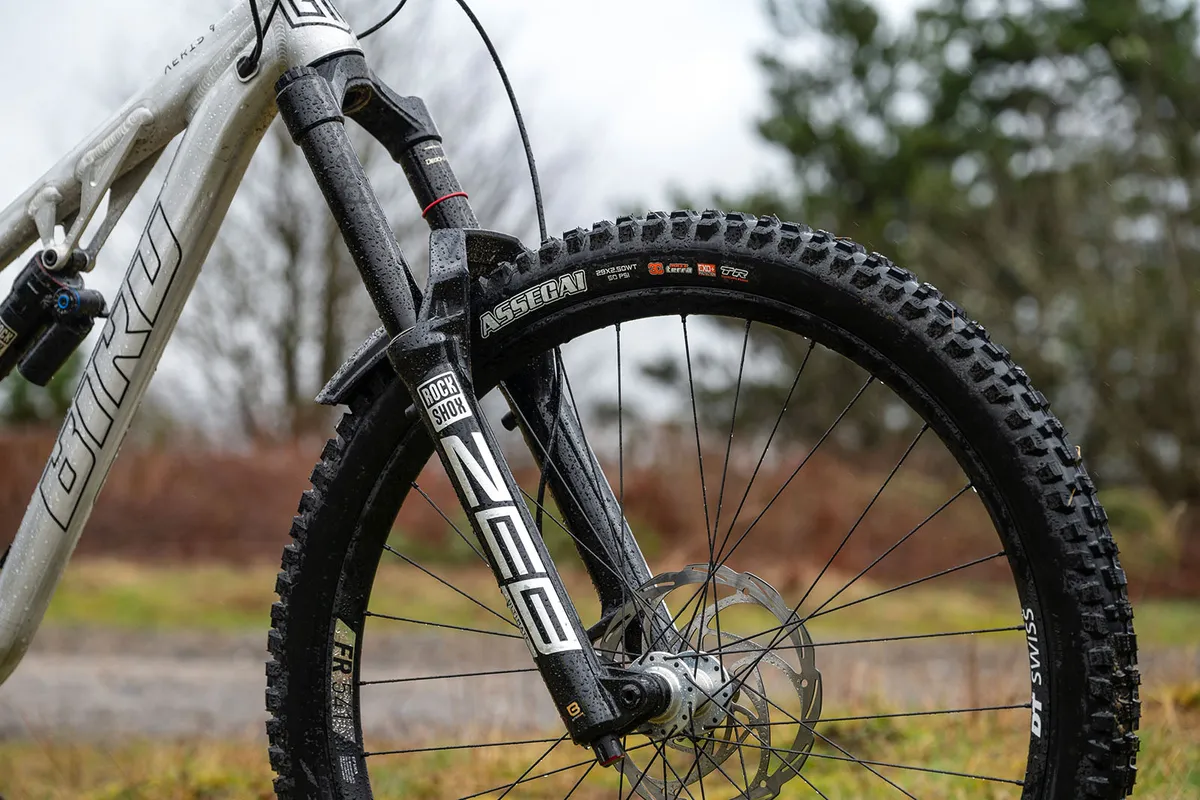
On high-speed trails, the Aeris feels just as at home as it does when navigating steep, technical natural terrain.
The ZEB Ultimate fork’s Charger 3 damper feels more damped than the older Charger 2.1, while the updated air spring feels better supported. As a result, the front of the bike feels calmer and more composed in situations that may have had the old fork pitching and diving more regularly.
That helps to sync the front with the rear end, which also feels very controlled.
Coupled with the stretched-out geometry, the result is masses of stability at high speeds.
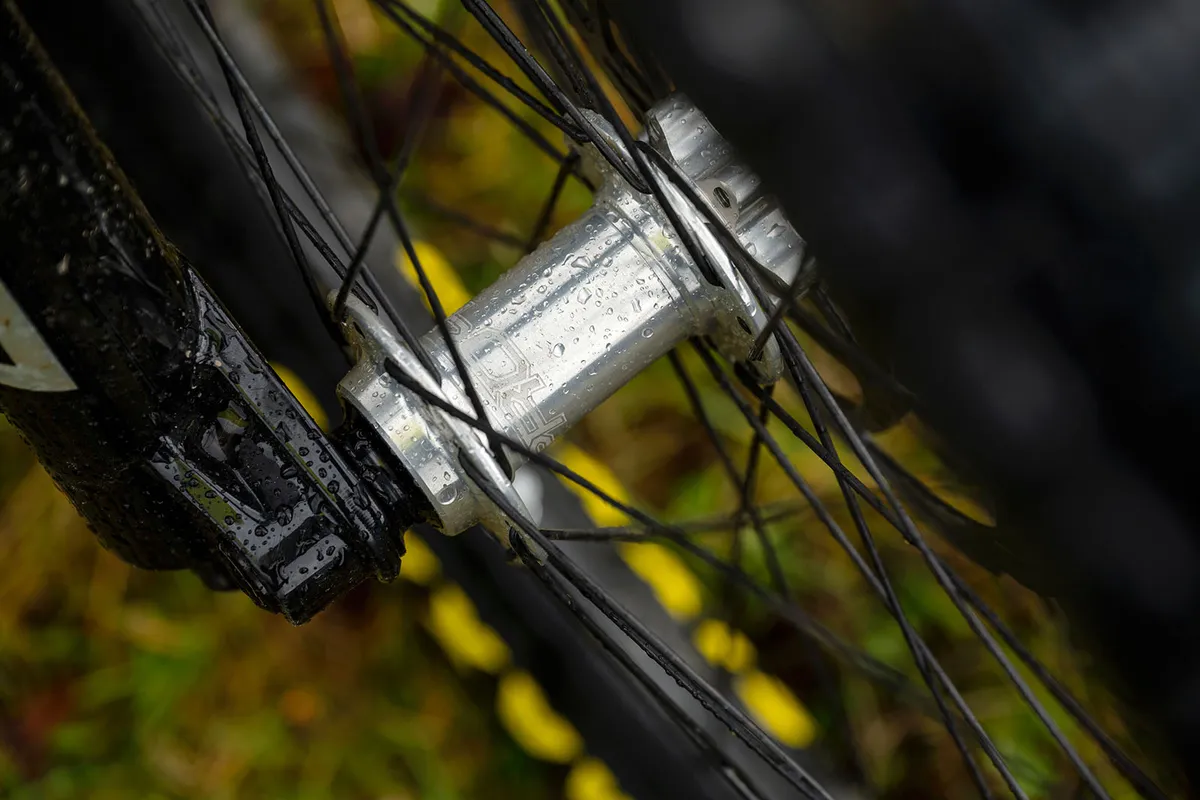
Through really rough sections, it’s a relatively comfortable ride, though the stiff Race Face bar does transmit more vibration to the hands than other, flexier options. This is, however, something you can alter at the point of purchase.
The frame feels nicely forgiving in harsh terrain – it’s not as taut or direct as others, but remains accurate and holds a line with ease through tricky sections of trail.
Ridden back to back with the best bikes in the Enduro Bike of the Year test, though, the Aeris 9 doesn’t feel quite as forgiving or comfortable as some.
I’d say the difference is relatively small, but it was certainly something I was conscious of at the end of longer, rougher runs when riding the bikes back-to-back.
How does the Bird Aeris 9 Shimano 12-speed compare?
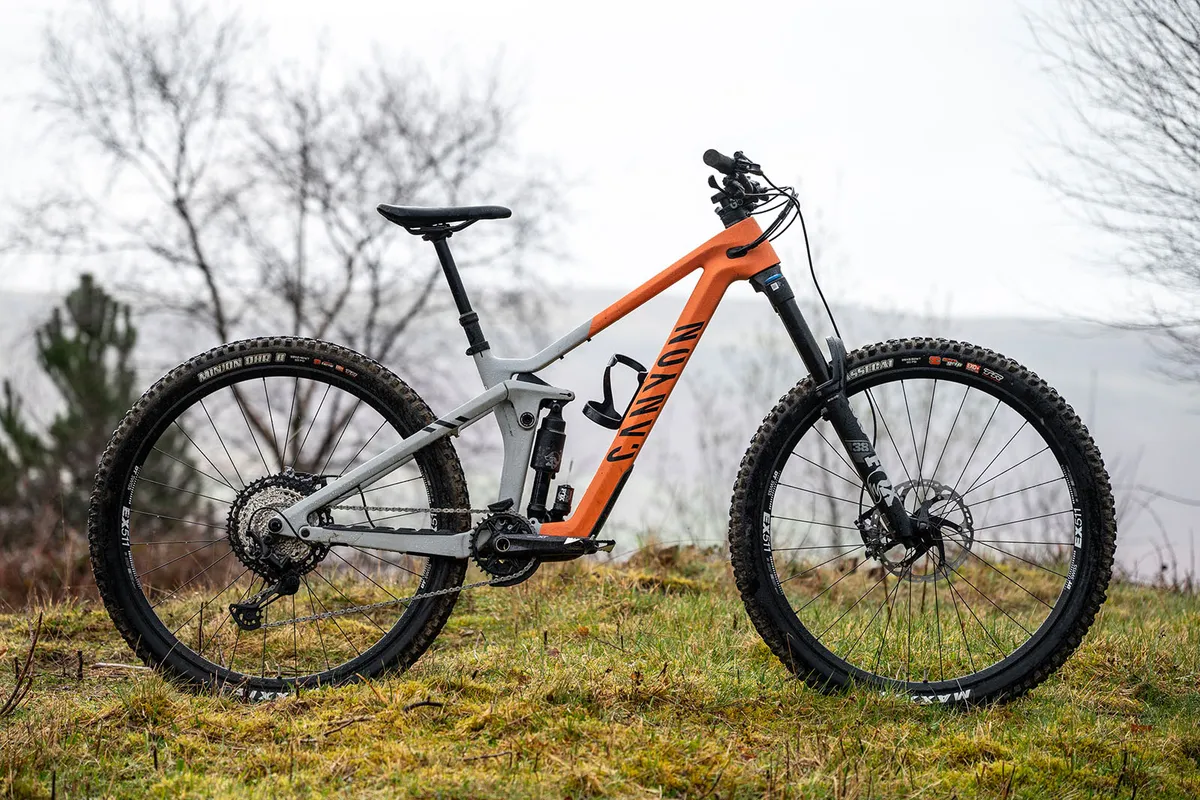
Compared to the Strive CFR Underdog – another bike with 29in wheels – the Bird excels in many of the same areas, feeling a little more rounded in some scenarios.
I’d argue the Strive is the superior of the two when it comes to how confident it feels on steeper or faster trails. It’s also more comfortable on rougher tracks.
While the Bird also mutes feedback to the rider, I’d say it’s generally more fun and lively to ride on mellower trails, where the Strive takes more effort to maintain speed.
The Aeris 9, on the other hand, keeps that pace with less effort and doesn’t feel quite as glued to the trail, which boosts its nimbleness in comparison.
Bird Aeris 9 Shimano 12-speed bottom line
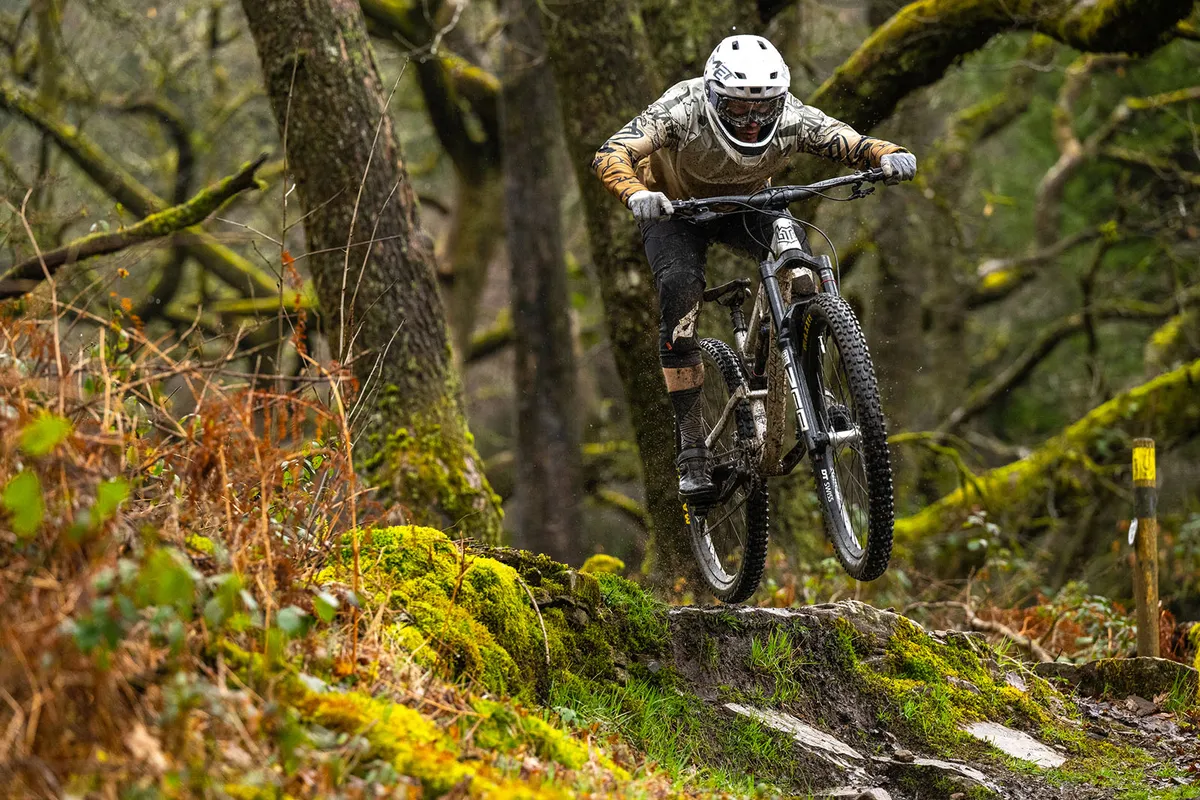
Overall, the Aeris 9 is a great bike that offers masses of stability and security when you need it most. However, it can at times lack some of the fun factor that the best bikes in this category offer.
The easy-to-customise builds make a lot of sense if you’re keen on spending more in certain areas than others, too. This makes the Aeris 9 a good choice if you’re picky about your parts.
That value, coupled with the impressive ride credentials, makes the Aeris 9 a seriously impressive enduro machine and one worth checking out if you value confidence in tricky terrain.
Enduro Bike of the Year | How we tested
Just what constitutes a great enduro bike and what does it take to earn the crown of the best enduro bike on test?
We'd argue it's all about balance and compromise.
Enduro riding and racing takes in all kinds of terrain and gradients. To tackle it confidently, safely and at pace, your bike needs to feel balanced, composed and stable.
Essentially, that equates to suspension that keeps the tyres glued to the trail but prevents the bike feeling like a bucking bronco when things get rough.
Of course, balance doesn't just come from the suspension, but the geometry, too. The right mix should enable it to feel like to a downhill bike when gravity is on its side and pedal back up the hill when the time comes.
The parts package needs to offer good value for money too. There's always going to be an element of compromise, but the smart brands will spend their budgets wisely.
Over a 12-week period, all of the bikes in this category were put through their paces on a wide variety of trails and tracks to ascertain their strengths and weaknesses.
The bikes were ridden back-to-back, as well as in varying orders to see how each one felt at the start and end of the day, once rider fatigue had set in.
Our 2023 Enduro Bike of the Year contenders are:
- Nukeproof Mega 297 Carbon Elite
- YT Capra 29 Core 4
- Merida One-Sixty 6000
- Canyon Strive CFR Underdog
- Vitus Sommet 297 AMP
- Giant Reign 1
- Cotic RocketMAX Silver Mullet
- Bird Aeris 9
Thanks to...
Thanks to our sponsors Crankbrothers, FACOM Tools, MET helmets, Bluegrass Protection, Supernatural Dolceacqua, Le Shuttle and BikePark Wales for their support in making Bike of the Year happen.
Product
| Brand | Bird |
| Price | £4333.00 |
| Weight | 16.46kg |
Features
| Fork | RockShox ZEB Ultimate RC2, 180mm travel |
| Stem | Race Face Turbine R 35, 40mm |
| Chain | Shimano XT |
| Frame | Aluminium, 180mm travel |
| Tyres | Maxxis Assegai 3C MaxxTerra EXO+ 29x2.5in (fr)/Maxxis Minion 3C MaxxTerra EXO+ 29x2.4in (r) |
| Brakes | Formula Cura 4 (203mm/180mm) |
| Cranks | Race Face Aeffect |
| Saddle | Ergon |
| Wheels | DT Swiss FR541 rims on Hope Pro4 hubs |
| Shifter | Shimano XT |
| Cassette | Shimano XT |
| Seatpost | Bird Down Dropper, 170mm |
| Grips/tape | DMR Deathgrip |
| Handlebar | Race Face Next R Carbon, 800mm |
| Rear shock | RockShox Super Deluxe Ulitmate |
| Available sizes | M, ML, L, XL |
| Rear derailleur | Shimano XT |
